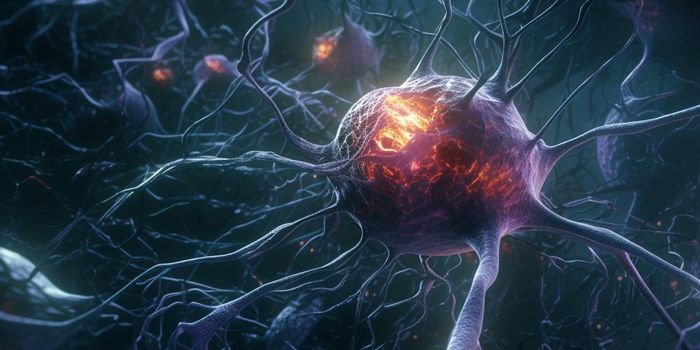Targeting Senescence in the Peripheral Nervous System to Fight Toxicity
Chemotherapy is a life-saving discovery for cancer patients. One of its biggest drawbacks is the toxicity that comes with most chemotherapy drugs. This toxicity causes some patients to drop out of the therapy and be forced to move onto secondary options.
Cisplatin is a platinum-based chemotherapy drug that attacks cancerous DNA and effectively kills or prevents cells from growing. While it usually targets cancer due to its fast-growing nature, it can also damage healthy cell DNA. One common side-effect is cisplatin-induced peripheral neuropathy. A new study out of the University of Arkansas sought to investigate if they could prevent this toxic effect by preventing something called senescence.
Senescence is a special state cells reach where they stop replicating. Usually associated with age, the team thought it might also play a role in cisplatin-induced peripheral neuropathy. DNA damage can actually induce a state of senescence, and chemotherapeutics do just that. Called therapy-induced senescence, this state stops cell growth and releases several signals that cause or enhance adverse effects in the tissue.
The team first needed to see if senescence played a role at all. They theorized that cells from the peripheral nervous system might be the source of cisplatin-induced peripheral neuropathy. They isolated peripheral nerve cells and used cisplatin on them. By measuring senescence biomarkers, they found that cisplatin alone was enough to force the nerve cells into a state of senescence.
A mouse model confirmed that mice given cisplatin were subject to cisplatin-induced peripheral neuropathy symptoms. The team then used a special mouse model where they could regulate a critical senescence gene to see if preventing senescence would also prevent the symptoms. Mice were given cisplatin but had their senescence gene turned off, failed to show any peripheral neuropathy symptoms. Expanding this into regular mice, the team used a method called senolysis to clear out senescent cells and found that mice treated with cisplatin displayed no signs of peripheral neuropathy.
This study shows that in mice, cisplatin-induced peripheral neuropathy is in part due to cisplatin-induced cellular senescence. The team notes that although this study focused on peripheral nerve cells, cisplatin could induce senescence in most of the nervous system. If these observations translate into humans, this could support a co-therapy to be administered alongside cisplatin chemotherapy for those who develop peripheral neuropathy.
The study concludes, “our data demonstrate that the accumulation of senescent-like neuronal cells in the DRG of mice contributed to CIPN following cisplatin treatment. Elimination of these cells using genetic and pharmacologic approaches reversed the peripheral neuropathy caused by cisplatin.”
Sources: Nature Scientific Reports, SENS Foundation









